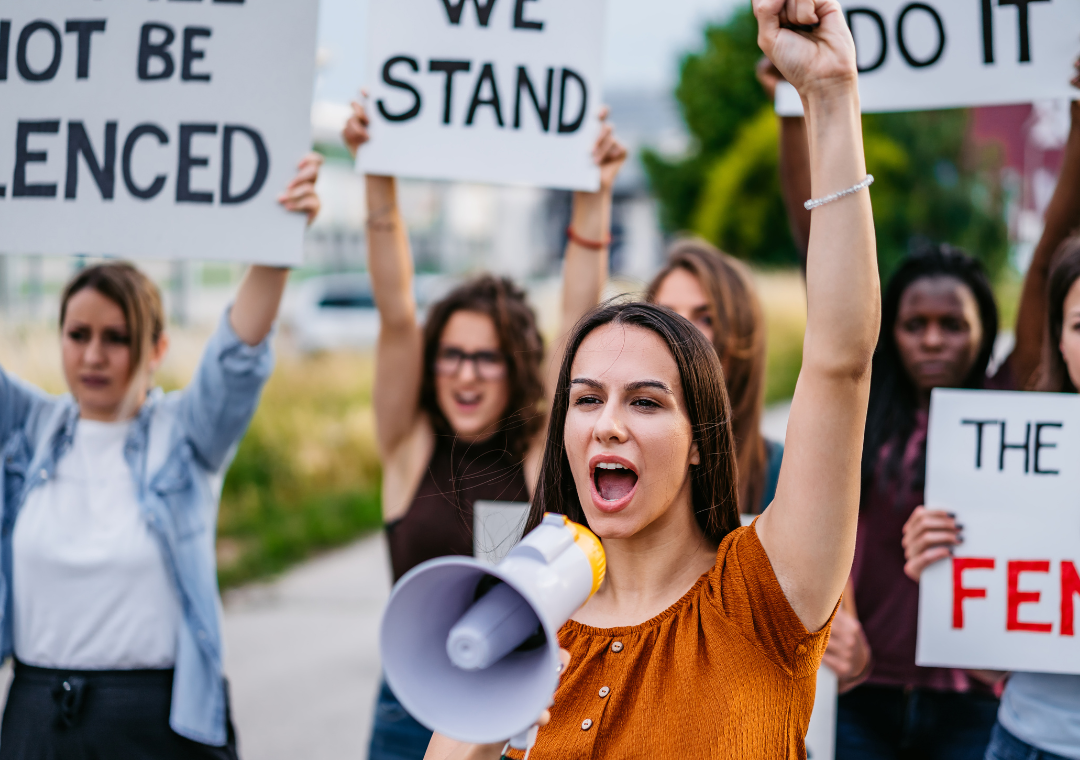On International Women’s Day 2024, the WAVE Network joins the global feminist collective in a resounding call to Invest in Women: Accelerate Progress. Our world confronts pivotal challenges, from geopolitical tensions to escalating poverty and the relentless impacts of climate change. Amidst these crises, women and girls bear the brunt, carrying disproportionate burdens. They face pervasive gender-based discrimination and violence, with intersecting identities amplifying vulnerabilities linked to race, ethnicity, age, sexual orientation, education, economic status, disability, and migratory status.
Amidst these pressing realities, achieving gender equality becomes not just essential but urgent. Yet, a staggering annual deficit of USD 360 billion in gender-equality spending persists[i], risking the impoverishment of over 342 million women and girls worldwide by 2030 if trends persist. Governments must prioritise gender-responsive financing, increase public expenditure on essential services, and fortify social protection mechanisms to address women’s needs effectively, including services for the prevention of gender-based violence against women.
Recognizing the vital role women play in global economies, policymakers must value and account for their substantial contributions, both through paid and unpaid care work. Despite women’s unpaid care work consuming three times more of their time than men’s, it remains undervalued, yet it constitutes over 40% of GDP if monetized[ii]. Imagine the transformative potential if women were compensated for their care work, enabling reinvestment in advancing gender equality.
Turning to the harrowing reality of gender-based violence, the data paints a bleak picture. In 2022, the UN reported that globally, more than five women or girls were killed hourly because they were women, totalling approximately 48,800 victims of femicide[iii]. Austria, home to the WAVE Network, faces particularly alarming rates, with Eurostat data revealing one of the EU’s highest femicide rates. Figures fluctuate, but between 2014 to 2024, 319 women fell victim to femicide, predominantly at the hands of spouses or ex-partners[iv].
Preventing and tackling femicide demands unified efforts, including robust preventive measures, robust support systems, and unwavering political commitment. By dismantling patriarchal structures and ensuring adequate funding for women’s specialist services, we strive for a society free from gender-based violence.
In response, as Europe’s largest network of women’s specialist services, WAVE recognises the imperative of addressing Austria’s femicide crisis. We reassert our unwavering commitment to combat femicide, amounting to a total of 7 femicides in only the first three months of the year, and 9 cases of severe violence perpetrated against women[v], underscoring the urgency of collective action. Austria’s lack of a national action plan exacerbates women’s vulnerability. Therefore, we demand political action to establish such a plan, integrating coordinated measures and amplifying funding for women’s specialist services. This plea is based on the fact that without a comprehensive strategy, existing responses remain fragmented, leaving women inadequately protected.
Yet, women’s specialist services in Europe face mounting challenges amid a hostile political climate and regressive backlash against women’s rights. This not only impedes progress in women’s economic empowerment but also erodes hard-won gains in fundamental rights and protections. The resultant decline in service provision further endangers women and children, exposing them to heightened risks of violence and poverty.
According to research, feminist organisations globally operate on scant resources and only receive a trivial 0.13% of total official development assistance (dedicated to education, health, economic development, and social protection), and 78 per cent of countries[vi] have budgetary commitments to implement legislation addressing violence against women. However, it is unclear how countries are integrating prevention across different sectors. Furthermore, current funding environments pose significant hurdles for feminist and women-led organisations with project funding and procurement processes often excluding grassroots women’s specialist services.
To catalyse change, immediate investment in women is imperative. The WAVE Network pledges to advocate alongside feminist organizations for financial frameworks that prioritise women, meeting their needs and advancing gender equality globally. Women’s immeasurable contributions to society, both seen and unseen, must be recognised, valued, and economically compensated through gender-responsive financing. As we mark International Women’s Day, let us recommit to collective action, amplifying women’s voices, dismantling systemic barriers, and forging a future where every woman and girl can thrive without fear or violence.
Please find the WAVE Network Statement on International Women’s Day 2024 in PDF format HERE.
[i] For comprehensive facts and figures on women’s economic empowerment, please visit UN Women’s official website: https://www.unwomen.org/en/what-we-do/economic-empowerment/facts-and-figures
[ii] Additional insights into unpaid domestic and care work can be found on the International Labour Organization’s website: https://ilostat.ilo.org/topics/unpaid-work/measuring-unpaid-domestic-and-care-work/
[iii] For comprehensive information and statistics on violence against women globally, visit UN Women’s website: https://www.unwomen.org/en/what-we-do/ending-violence-against-women/facts-and-figures#:~:text=In%202022%2C%20around%2048%2C800%20women,someone%20in%20their%20own%20family.
[iv] For further statistics and data on femicide rates and gender-based violence in Austria, refer to the Austrian Women’s Shelter Network’s official website: https://www.aoef.at/index.php/zahlen-und-daten
[v] Ibid.
[vi] For valuable resources and good practices in promoting gender equality through legal frameworks, please consult UN Women’s publication available at: https://data.unwomen.org/resources/behind-numbers-good-practices-promoting-gender-equality-through-legal-frameworks













